The conquest of the Docklands
Author(s)
François Marzelle (FR)
Isabelle Manescau (FR)
Edouard Steeg (FR)
Client(s)
Sonacotra
Competition team
François Marzelle (FR)
Isabelle Manescau (FR)
Edouard Steeg (FR)
Jean-Marie Dancy (FR)
Architects
Europan 1 Rotterdam / Bordeaux
winner
1989 - Rotterdam
The expansions and contractions of activity (yesterday industry, today the service sector), create terrains with an uncertain future zones in suspension. These boundary zones, these margins, demonstrate that any aspirations to finish a locale, a district, a town are in vain. It is interesting however to work upon this suspension, this indetermination, to display it, to underline it. For their winning project in Rotterdam in the Netherlands, the team did not try to give a new image of the river banks, to make them more « urban », less industrial, in a way more civilised. On the contrary, they tried to capture what survives of these sites, their power to attract, what it is that makes them fascinating. Their proposal was located on the Quai Maas of the Port : a building for short-stay accommodation, like a pontoon, grouping common circulations, and for each home, a large, empty double-height volume, whose use was flexible, and onto which was attached mobile containers containing the singular spaces for each home.
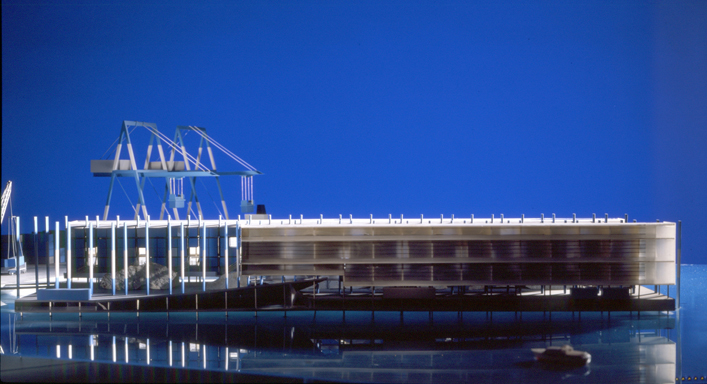
1991-1992 - From Rotterdam to Bordeaux
In Bordeaux, Les Chartrons district is located in a central area of the city, made up of wine warehouses hidden by roadside houses. It is on this changing site that the client SONACOTRA decided to build a hostel with 102 furnished rooms mostly for elderly immigrants transferred from another hostel in need of modernisation. To achieve this, the client asked the winning team of Europan 1 on the site of Rotterdam who had the opportunity to work on short-stay accommodation, and to develop an innovative typology of container-habitats organised around a large flexible room. On the new site in Bordeaux, the challenge was to design a community hostel within tight constraints.
Like for the competition site in Rotterdam, it was not a question of changing the image of the district, of giving it a new look but rather of preserving its cachet, its character and to insert into this slightly withdrawn area an enclave that is just as secluded.
In the design, the 102 rooms are distributed around 21 living and shared activity units, themselves arranged around a patio/courtyard.
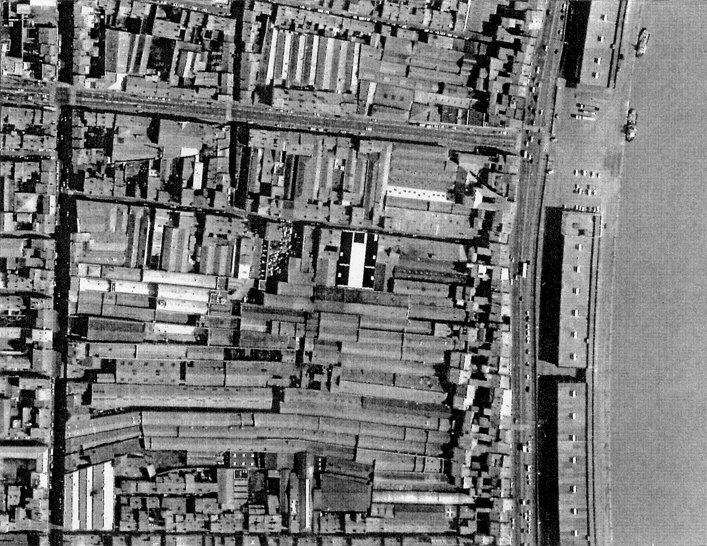
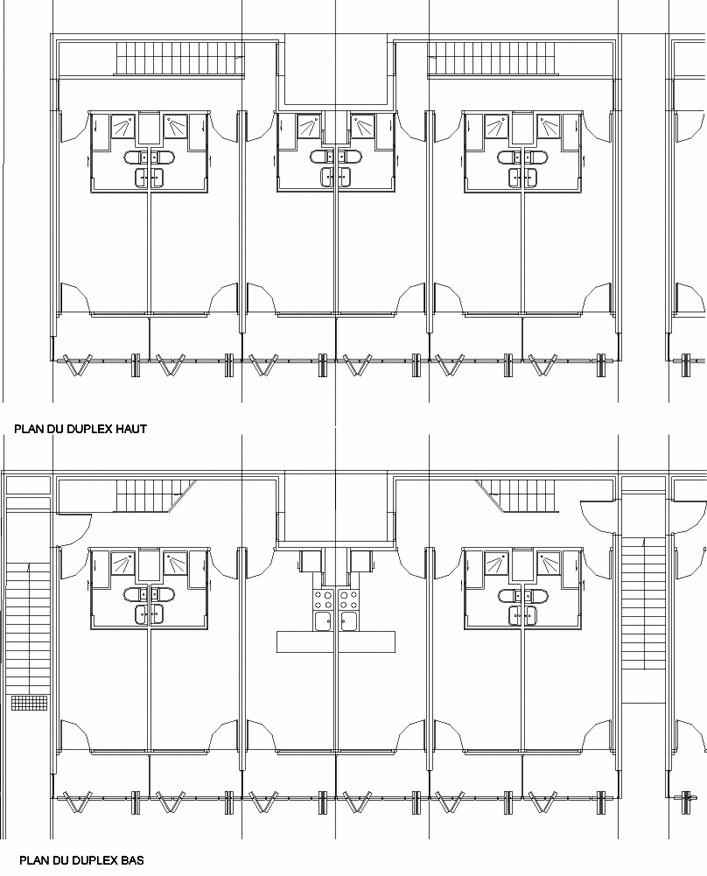
1993-1994
Between idea and implementation, numerous obstacles emerged. The main difficulties arose from the tightness of the budget and the strict regulations. However, the team also had to turn around a culture where welfare housing and architectural poverty go together.
The changes to the plan, due amongst other things to the presence of groundwater and the need for disabled access, did not affect the project, but did cause delays. However, the building quickly became a success with the residents.
Apart from the social issue, the hostel gave a boost to the modernisation process of the district.
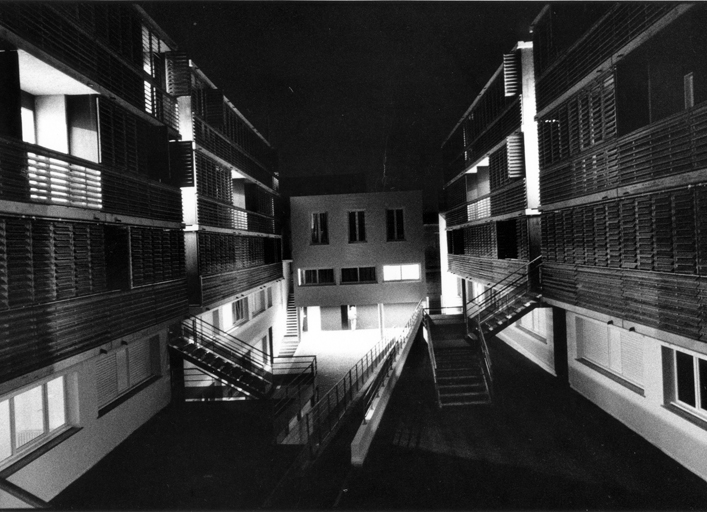
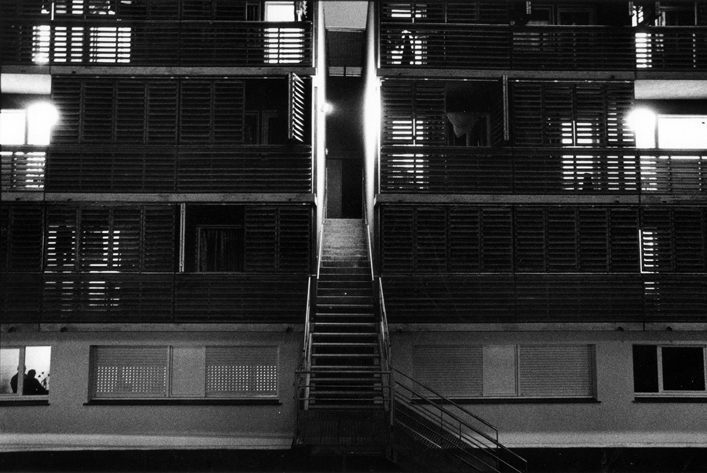
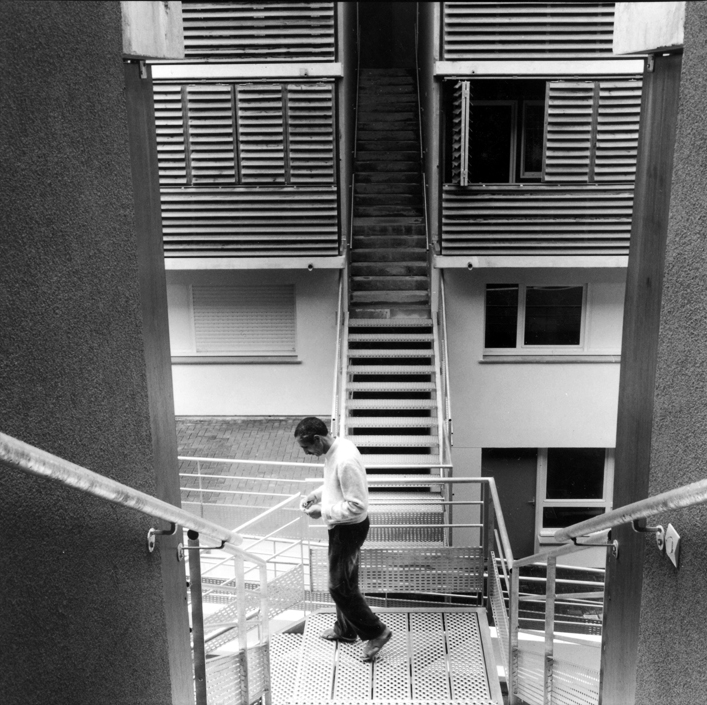
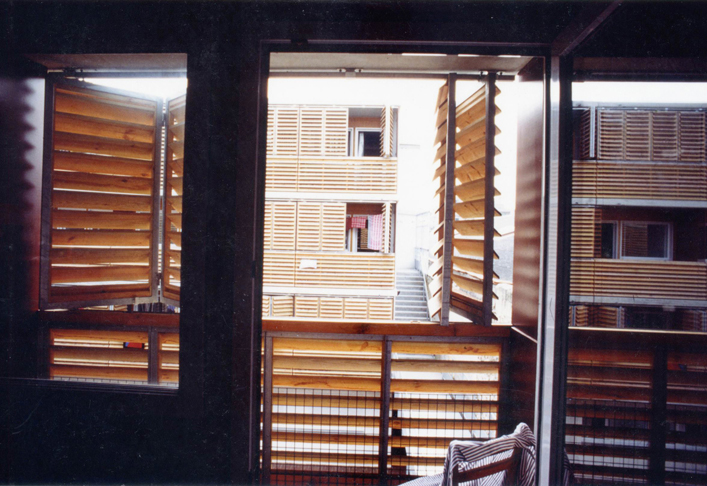
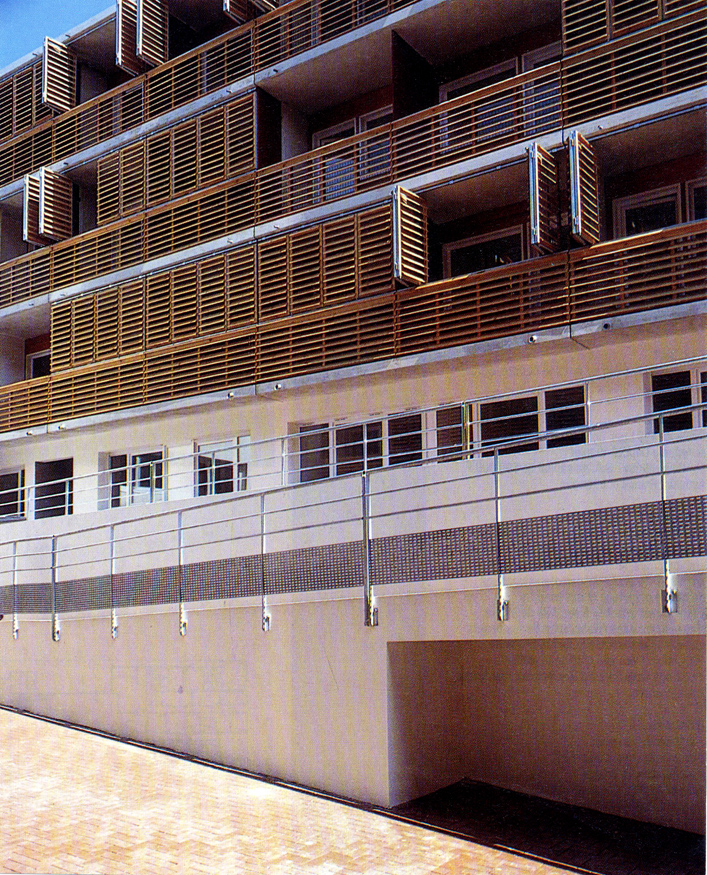
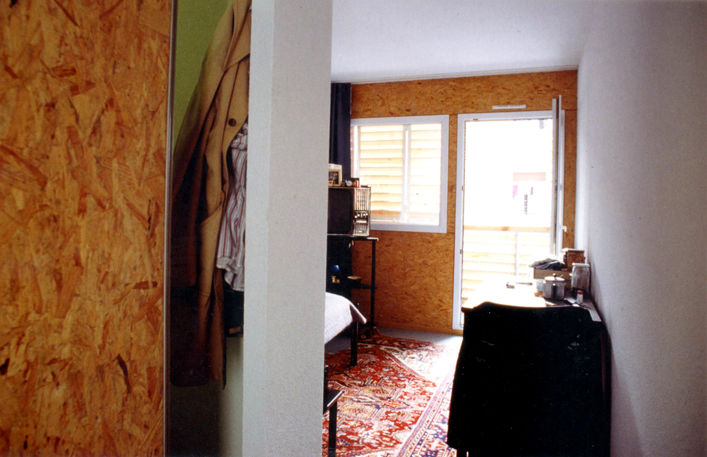
Site informations
Rotterdam / Bordeaux